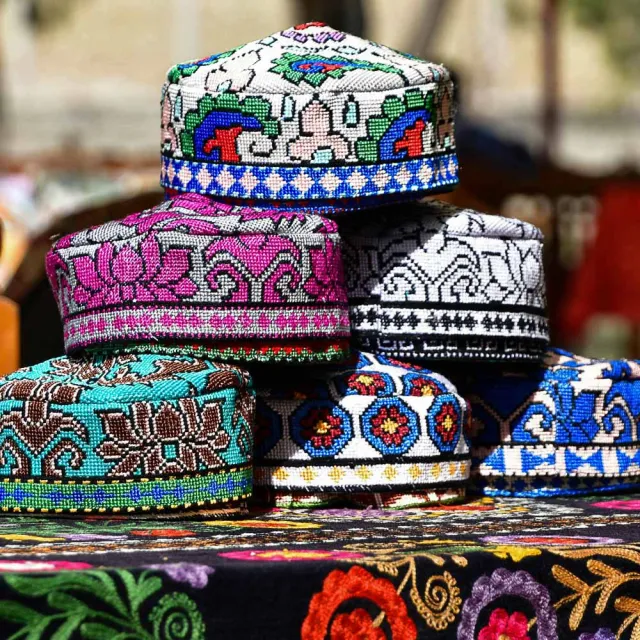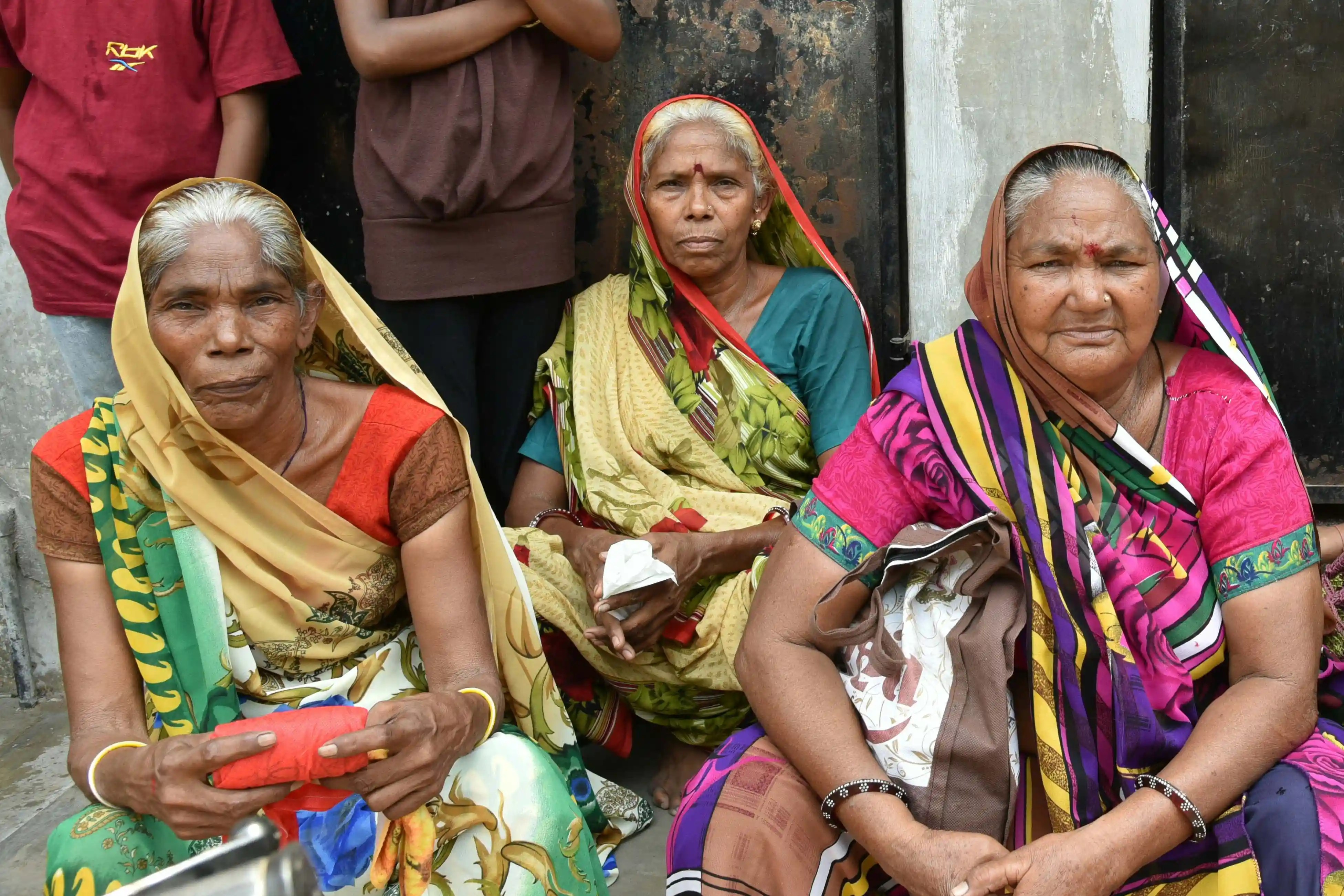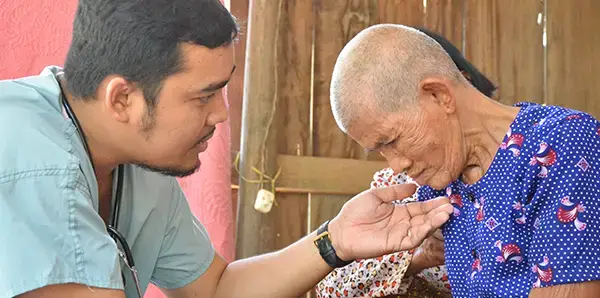Third Culture Kids
The Benefits, Challenges, and How to Care for Them

One major and understandable concern of parents who are considering a call to global missions is the impact missionary life will have on their kids. There is no denying the globally mobile lifestyle and cross-cultural ministry affects the mental, spiritual, and emotional formation of missionary kids in both positive and negative ways. Below we will explore the benefits and challenges of growing up as a third culture kid and provide suggestions and resources for raising healthy missionary children. These findings are a compilation of research from Lauren Wells, former missionary kid and founder of TCK Training, Tanya Crossman, former TCK and author of the book “Misunderstood”, Ruth E. Van Reken, co-author of the book “Third Culture Kids”, as well as several Mission to the World missionary families.
What Is a Third Culture Kid?
The experience of a missionary kid fits under the larger umbrella of third culture kids. In their book, “Third Culture Kids”, David C. Pollock, Ruth E. Van Reken, and Michael Pollock define a TCK as “a person who spends a significant part of his/her first eighteen years of life accompanying parent(s) into a country or countries that are different from at least one parents’ passport country(ies) due to a parent’s choice of work or advanced training.” Besides missionary kids, traditional TCKs include military kids, foreign service dependents (children of those working in embassies and consulates), and international business kids.
The Pollocks and Van Reken emphasize the “third culture” is not a blend of two different cultures but is itself its own distinct culture. This means somebody born in the United States and raised in Uganda can have more in common with somebody who was born in China but grew up in England than they do with their peers in their current or passport country. Their similarities arise from an exposure to many different cultures during their upbringing despite the difference in the geographical locations in which they live.
The Benefits
It can be easy to focus on the challenges of the TCK upbringing but there are some valuable benefits. TCKs have a global perspective with an appreciation for the common human experience that unites people across cultures and are usually less prejudiced and more culturally tolerant than their peers who grow up in one culture. They are adaptable, flexible, and able to competently handle unfamiliar situations with confidence and compassion. They also have opportunities to partake in exciting and meaningful life experiences such as international travel, engagement with a variety of cultures, and the chance to make friends with different types of people.
In addition to these TCK benefits, missionary kids growing up in a Christian family also have an expanded view of God and His kingdom. They get to enjoy the rich diversity of the body of Christ and are more aware of the global Church and God’s work around the world than children growing up in one place. MKs also understand the complexity of God’s world and the realities of poverty, suffering, death, and idolatry.
Former TCK and author of the book “Misunderstood,” Tanya Crossman has conducted extensive surveys among TCKs and her research shows many have a positive view of their childhood experience. She found that about 80% of those surveyed were thankful for their upbringing overseas saying that it was exciting, special, and fun. Similarly, in a recent articleseveral MTW missionary parents said that serving overseas was one of the best things they did for their family. Their kids walk through life with a robust, intricate understanding of God, the Church, and the world and can experience these things in all of their beautiful dimensions and nuances.
The Challenges
To raise healthy TCKs, parents and other caregivers must be aware of the specific difficulties TCKs face. Lauren Wells, a former MK and founder and CEO of TCK Training, identifies the following challenges that she says “occur in childhood but manifest in adulthood.”
TCKs consistently deal with unresolved grief due to repeated and unacknowledged loss (of homes, family, friends, etc.) They can struggle with their identity and feel disconnected, rootless, and as if they don’t belong anywhere. Due to their exposure to many cultures and places, they often witness a high degree of trauma. Their upbringing can also lead to a need for change and a fear of failure as they are often in the spotlight because of the high visibility of their parents’ roles.
Missionary kids also have specific challenges. Two Mission to the World missionary mothers, speaking at a recent MTW Praxis conference, said that MKs often lack Christian friends: the nature of missions work and international church planting means missionary children are usually not growing up in a Christian environment or established churches with lots of kids their age.
Perhaps most significantly, their cross-cultural missions experience is intertwined with their faith formation. Ruth E. Van Reken says, “For many TCKs, questions arise from dealing with the paradox of faith and pain in the same situations. Unrecognized and unresolved grief arising from mobility and multicultural issues are common to all TCKs. But for missions kids, the reasons for most of their losses are directly tied to God. Who asked their parents to become missionaries in the first place? To question the pain is to question God.
Caring for TCKs and MKs
Unfortunately, MKs and their parents can’t escape the challenges of the TCK upbringing, but the difficulties do not automatically lead to negative outcomes. Below are some of the habits and routines Lauren Wells suggests parents and other TCK caregivers establish to minimize the challenges and maximize the benefits.
1. Ask more than assume.
Tanya Crossman says that one third of the TCKs she surveyed felt misunderstood by their parents, and over half felt misunderstood by their family members and friends because they can assume they know what a TCK is thinking and feeling instead of asking them about it.
Parents and caregivers should get into the habit of asking questions and listening. “Show them that you are trying to understand them rather than assuming that you already do,” says Lauren Wells.
2. Root their identity in something other than being a MK.
While it is important to show MKs you are trying to understand their thoughts and feelings, fixating on their identity as a missionary kid can make them feel that is the core of who they are. Caregivers need to help them root themselves in something bigger than their upbringing. How?
First, ground their value in the gospel and their identity in Christ. The most defining aspect about them is they are a child of God, bought with Christ’s blood, and part of His kingdom. Take advantage of every opportunity to help them understand their value and identity as God’s beloved child.
Second, help them build a strong sense of self that transcends all cultures. Get to know who they are as an individual without putting pressure on them to claim a cultural identity.
Third, don’t correlate every negative feeling to the fact that they are a TCK. Sometimes the reason they are sad or angry may not have anything to do with their third culture experience. Again, just ask them and listen to what they say.
3. Address grief and trauma
“All TCKs experience a steady stream of extreme change and loss,” says Wells. Whether your child is 3 or 13, this is going to have an impact. Even if your child is not showing signs of grief, you will need to work through the loss with them as it happens. Lauren suggests allowing kids to express themselves through creative outlets such as art, music, writing stories, journaling, or play acting.
Then talk about it with your child. Discuss the difficulty of moving away from family and friends or adjusting to a new place without putting any type of positive spin on it. “Parents and caregivers can encourage TCKs with the benefits later but kids need to know that it is OK to be sad and they need to work through their sadness,” she says.
“When unresolved grief adds up, it can turn into trauma,” says Wells. Parents and caregivers of TCKs need to know the signs of trauma which include unhealthy coping mechanisms, depression and anxiety, not showing any emotion or showing too much emotion, nightmares, and an inability to sleep or an inability to sleep in their own bed. (Visit the CDC website to learn more about the signs and treatment for grief and trauma).
If your child shows signs of trauma, address it as quickly as possible. Know the resources and personnel your missions agency, church, and field provide should a crisis occur and don’t hesitate to reach out for help. For example, MTW’s Member Care Department offers staff counselors and a larger network of counselors for all our missionaries and their families.
4. Connect them with other TCKs.
Finally, parents need to take advantage of every opportunity to connect them with other TCKs. This can be through the missions agency’s retreats and conferences, events hosted by other missions organizations, a community with team members, or befriending other TCKs nearby. One MTW missionary family spoke of the importance of going to the MTW area retreats, saying it allowed their four children to meet people who understood them.
Connecting adolescent MKs with adult MKs can also be beneficial. This gives teenage MKs an adult who can offer insight, wisdom, and understanding since they have already experienced the highs and lows of growing up as an MK. Supporting churches can play a helpful role by asking grown MKs in their congregation if they would mentor one or two missionary kids the church supports. These types of relationships can be even more effective if they are established before moving to the field.
Final Thoughts
If you are a parent either exploring a call or getting ready to serve overseas, talk to former missionary parents and kids. They are the best people to learn from as they can speak to the joys and difficulties of living and working cross-culturally.
Raising healthy MKs is possible if parents and caregivers are intentional about learning, preparing, and implementing specific ways to care for their kids while on the mission field. Remember that God is the One who calls His people to make disciples among all nations and promises to be with us as we obey. He cares and provides for missionary families dedicated to sharing the good news of Jesus with those around the world.
For Further Study
The above exploration of the benefits, challenges, and ways to care for TCKs is based on research from a variety of sources, some of which are listed below. This article is not meant to be exhaustive and we have compiled a list of resources for more in-depth study.
- Misunderstood: The Impact of Growing up Overseas in the 21st Centuryby Tanya Crossman
- Third Culture Kids 3rd Edition: Growing up Among Worldsby Ruth E. Van Reken, Michael V. Pollock, and David C. Pollock
- TCK Training founded by Lauren Wells






